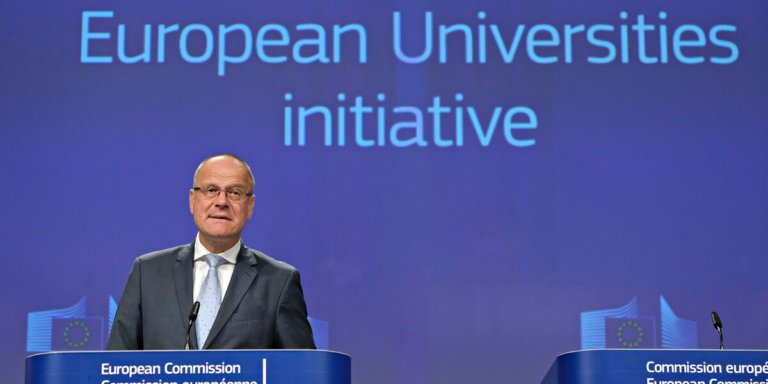
It was recently announced that 17 European universities have joined forces to become ‘transnational universities’.
According to UniversityWorldNews, “European Universities’ are cross-border alliances of higher education institutions from across the EU that share a long-term strategy and promote European values and identity.
“The initiative is designed to significantly strengthen mobility of students and staff, and foster the quality, inclusiveness and competitiveness of European higher education, the European Commission says.”
Out of 54 applications, 17 European Universities involving 114 higher education institutions from Europe were selected.
Of these, only three universities from the UK won the competition to be part of the alliances. However, according to Science Business, “UK universities would “be forced to leave their projects” if the country exits the EU without a deal, a commission spokesman confirmed.”
France scored the highest with 16 successful alliances, followed by Germany with 14 universities, Italy with 11, and Spain with nine.
Hungary and Poland had five winning universities, while Bulgaria, Estonia, Luxembourg and Slovakia had none.
Jan Palmowski, secretary-general of the Guild of European Research-intensive Universities said, “The competition should and must be about quality, not about the fact that every country gets something. So if some countries have been unsuccessful it is important that their ministries work closely with applicants to support them in the second round as much as possible.”
Each alliance will receive up to €5 million in the first three years, so they can start implementing their plans and “pave the way for other higher education institutions across the EU to follow,” according to the European Commission.
Pleased to support these first 17 #EuropeanUniversities with €85 million over 3 years. We will develop this initiative based on their experiences, the results
of a second test to be launched in autumn 2019 & full roll-out under future#Erasmus programme https://t.co/nHJ69cfsKy pic.twitter.com/aAP7wD0ybn– Tibor Navracsics (@TNavracsicsEU) June 26, 2019
“While some alliances are comprehensive and cover all disciplines, others are for example focusing on urban coastal sustainability, social sciences or global health. Each alliance is composed of an average of seven higher education institutions from all parts of Europe, leading to new partnerships. This reflects the distribution of applications received from the various countries.”
But what’s the purpose of the alliance and what does it mean for international students?
It’s still early days to see the full impact of the European universities, but a key aim is to promote international collaboration.
The driving factor behind the alliance is “make European universities more competitive internationally, compared with the best of the US and Asia for instance, but also to strengthen the sense of common European values and a common European identity”.
As inter-university campuses, students, doctoral candidates, staff and researchers can move seamlessly between the different institutions to “pool their expertise, platforms and resources deliver joint curricula or modules covering various disciplines.”
International students at the universities under the alliance get to enjoy a flexible curriculum and personalise their education, with the ability to choose “what, where and when to study and get a European degree.”
According to UniversityWorldNews, “This could mean students attending parts of their degree physically or virtually in different institutions within the network. It could also mean institutions developing complementary curricula and even complementary facilities for research.”
New alliance of seven #European universities – including Edinburgh – secures €5 million funding to create new education network. This will enable Edinburgh students and staff to undertake research and exchanges in seven EU countries. https://t.co/gq8SXaC8V2 pic.twitter.com/SYEoqczi1Y
— The University of Edinburgh (@EdinburghUni) June 26, 2019
For international students, it means they stand to gain an even broader academic experience during their time abroad. This could be an important factor for the cohort to consider when deciding where to study.
If accepted into any one of these universities, they will get the opportunity to deepen their academic knowledge and research, as well as their industry network, and gain a more global perspective, which helps turn them into more employable graduates. Worldliness gained from exposure to different cultures and nationalities is a trait that’s highly sought-after by employers in an increasingly globalised world.
Tibor Navracsics, Commissioner for Education, Culture, Youth and Sport, said, “I am pleased to see the ambition of the first 17 European Universities, which will act as role models for others across the EU.
“They will enable the next generations of students to experience Europe by studying in different countries. I am convinced that this initiative, a key building block of the European Education Area, will be a real game changer for higher education in Europe, boosting excellence and inclusion.”







